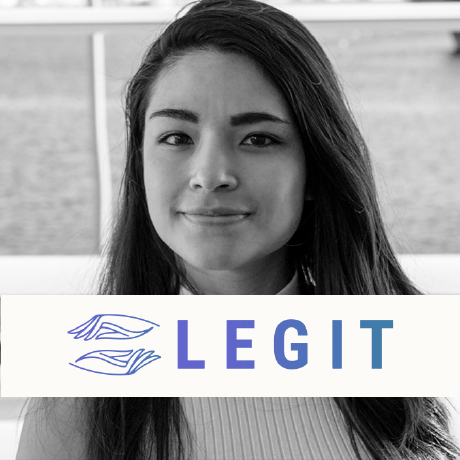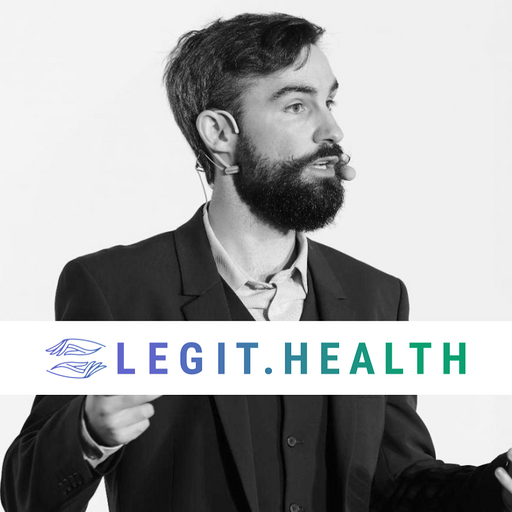When the AI analyses a picture, is that considered a medical act?
Have you ever wondered how to deal with reimbursement when using Legit.Health? Let's explore why the act performed by our artificial intelligence is a reimbursable medical act.
Short answer: yes
Yes, every time a patient sends a photo of their disease, and Legit.Health's artificial intelligence finds a disease or measures its severity, this constitutes a medical act, as defined in HL7's FHIR standard and the Medical Code of Ethics of most countries.
Keep in mind that Legit.Health's artificial intelligence searches for conditions and measures the degree of affectation of the patient on behalf of the doctor. Furthermore, there is a doctor indirectly involved in this process, who must confirm the diagnosis and make the final medical decision.
That is why Legit.Health reduces the amount of work that each medical act bears, while still being a reimbursable medical act. If you want to understand why dermatological artificial intelligence performs medical acts, we encourage you to read the long answer.
Long answer
Medical act by definition
The best way to decide if x is y, is by looking at the definition of y and checking if x matches the parameters of the definition. So let's start by reading the definition:
A medical act is any lawful activity, carried out by a legitimately trained medical professional (...) aimed at curing a disease, alleviating a disease (...) by direct and indirect means.
As you can see, this definition includes three requisites that an act must meet to be considered a medical act. These requisites are: it must be lawful, it must be aimed at curing or alleviating disease and it must be performed by a medical professional, directly or indirectly.
Let's analyse each requisite one by one and explain how Legit.Health meets them. As you will see, it is a medical device by definition.
1. It must be lawful
Yes. When an organisation uses Legit.Health's artificial intelligence, they are engaging in a lawful activity. Legit.Health is a medical device that is CE-marked and complies with all applicable regulations. To learn more about this topic, feel free to request a copy of our CE Declaration of Conformity.
2. It must be aimed at curing or alleviating disease
Yes, and this is somewhat self-evident. When an organisation deploys Legit.Health's dermatological artificial intelligence, it's a step in a healthcare process that is primarily aimed at helping patients who suffer from a condition. In fact, no one except healthcare providers can use our solution.
3. It must be performed by a medical professional, directly or indirectly
Yes, but this one is trickier. Medical acts can only be performed by medical professionals. But Legit.Health is a device, not a medical professional. Then, how can it be a medical act? The key is that the definition of a medical act also covers the clinical interactions in which the physician partakes indirectly.
Legit.Health is classified as a clinical decision-support tool aimed at helping medical professionals during the diagnosis of diseases. That is why the device only classifies conditions on behalf of the doctor who is caring for a patient. Furthermore, this doctor is indirectly involved in the process and must confirm the diagnosis and make the final medical decision.
But wait... can it be automatic?
Yes. To the best of our knowledge, whether or not something is a medical act is not determined by the effort or the time it takes to carry it out. Furthermore, it seems unnecessarily wasteful to force doctors to invest time and effort in a situation that does not demand it. That is why reimbursement policies should not penalize medical acts that are quicker to perform.
The key to whether or not something is a medical act is applying practitioners' skills and knowledge towards helping patients. Legit.Health is a convolutional neural network that gathers the consensus of a large group of doctors, who transmit their knowledge to artificial intelligence, and then apply this knowledge to help patients. It just so happens that it does it so quickly and effortlessly -- and that's no reason to disqualify it from being a medical act.
Hold on... can it be remote?
Yes. Again, we could not find a definition that requires care to be in person.
In our case, Legit.Health is a computer visión CNN that can find diseases by looking at images. Images can be taken from home and sent through the internet. Thanks to this, in some cases the trip to the consult is unnecessary - and that's no reason to disqualify it from being a medical act.
The medical act is not defined by the time and effort it bears nor the presence of the doctor and the patient in the same room, but the application use of the practitioner's skills and knowledge towards helping the patient.
Medical act by process
Every time a patient sends a photo, it's processed by the algorithm. This automatically generates a Diagnostic Report, as defined by the international HL7 organization. This report is a collection of data presented in a clinically relevant way that helps the doctor make a faster, more objective and more accurate diagnosis.
The data outputted by the algorithm triggers a clinical workflow, sends information to the patient and the doctor, and enables care continuity. This constitutes an Encounter, and thus a medical act.
There are two points we want to stress regarding this topic. First and most importantly, Legit.Health is a clinical support tool that doctors use to care for patients (as opposed to being used by patients without a doctor's intervention). Therefore, the very nature of the tool is to help doctors carry out the diagnostic or therapeutic process.
The use of applications for the telematic follow-up allows the flow of information between doctor and patient without the need for face-to-face consultations, adjusting it to a more real-time and allowing changes in the therapeutic attitude more quickly and effectively.
Additionally, the algorithm has been trained using the consensus and combined experience of the top doctors in the field, and therefore it represents the criteria of legitimately trained medical professionals. Thus, the use of the app is often compared to the doctor asking a colleague for a second opinion on a case. The only difference is that, thanks to Legit.Health, they can do it automatically for every patient, taking only seconds to do so.
Traditional consultation
8 medical acts per hour
With Legit.Health
52 medical acts per hour
With all things considered, it is easy to see how Legit.Health changes the paradigm. Allowing to simultaneously increase the number of medical acts a doctor can perform while reducing the work and time each of them takes.
We are aware of the technical, administrative and economic differences between a face-to-face medical act and an automatic or remote medical act. We aim to eliminate unnecessary video calls, improve the reliability of the information that reaches the doctor, and turn telemedicine into an efficient, profitable endeavour for both the doctor and the healthcare provider.
Get access now
Empieza ahora
Dermatología con IA validada por investigación revisada por pares. De confianza en los principales hospitales de Europa. Rellena el formulario para ver cómo nuestra plataforma con marcado CE puede transformar tu práctica.




